CocoaGems gets strange at Strange Loop
What is Strange Loop?
Strange Loop took place in St. Louis, Missouri. The same county where Ferguson is located. The conference, like the attendees themselves, were anything but conventional. I heard more than a few attendees who described it as a conference with equal amounts of heart and brain. So what makes it so that a conference has head and heart? Speakers who talk about society and about how software affects society – some talked about inclusion, the technical divide, what it means to be a person of color in tech and what we can do about it, and also about cognitive biases. The lightning talks and sessions at Strange Loop were plentiful; by plentiful I mean there was a total of 20 workshops to choose from the day before the conference began, and then there was a total of 36 talks over two days plus 12 evening un-sessions on Friday after day one of the conference. Strange Loop has a wide range of talks, many of them had a inter-disciplinary vibe to them. As an attendee you get exposed to a lot of different languages and techniques.
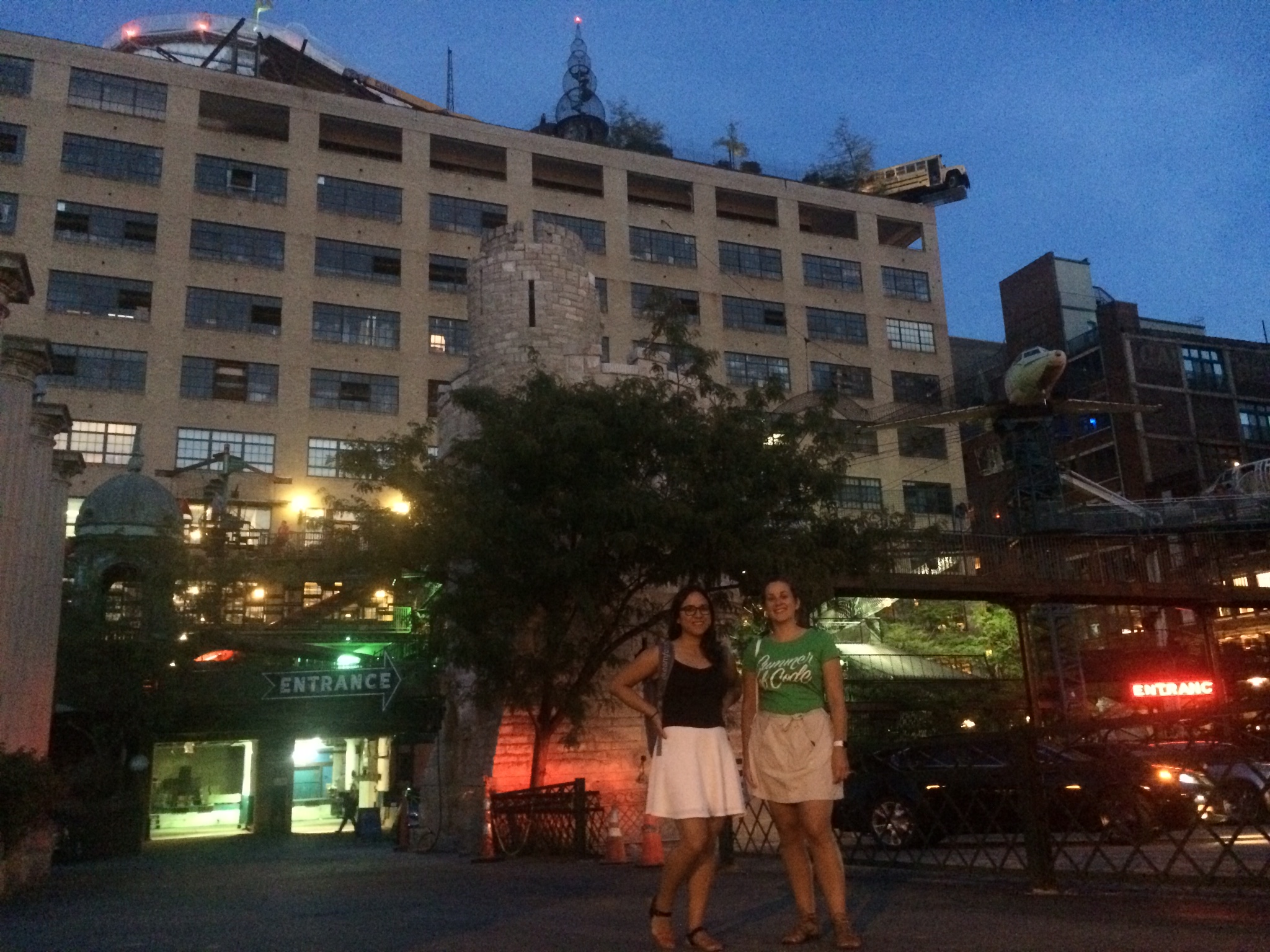
The pre-party was held at the City Museum. (Photo: CocoaGems)
Take Aways
A main take away from Strange Loop was the great value of connecting computer science with other interests or subjects. Carin Meier played around with building programs in Clojure based on chemical reactions. Since all living organisms information systems are based on chemical processes, there is a lot we can learn from it; by showing the audience demos she wanted to give an eye opener for more innovation and new ways of thinking about computer problems.
Amy Wibowo’s talk was about how she and a group of Airbnb engineers hacked a knitting machine to be computer-controlled so that it could print images in yarn. She and her team learned a great deal of electronics using the problem-solving skills that computer science requires in an engineering day job; by applying these skills to a hobby project, they experienced the joy of being new to something as well as getting yarn print outs.
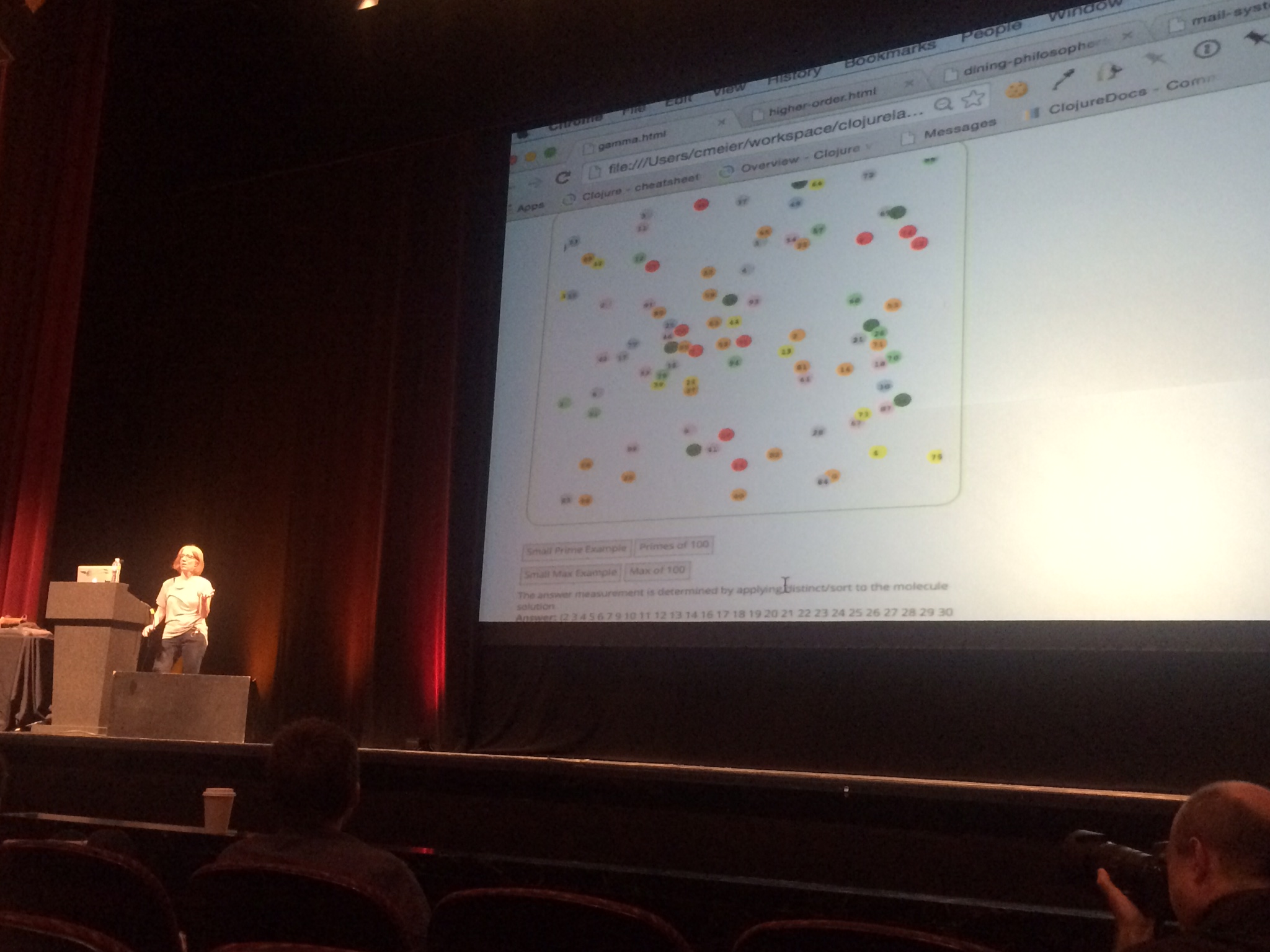
Carin Meier talks about Chemical Computing. (Photo: CocoaGems)
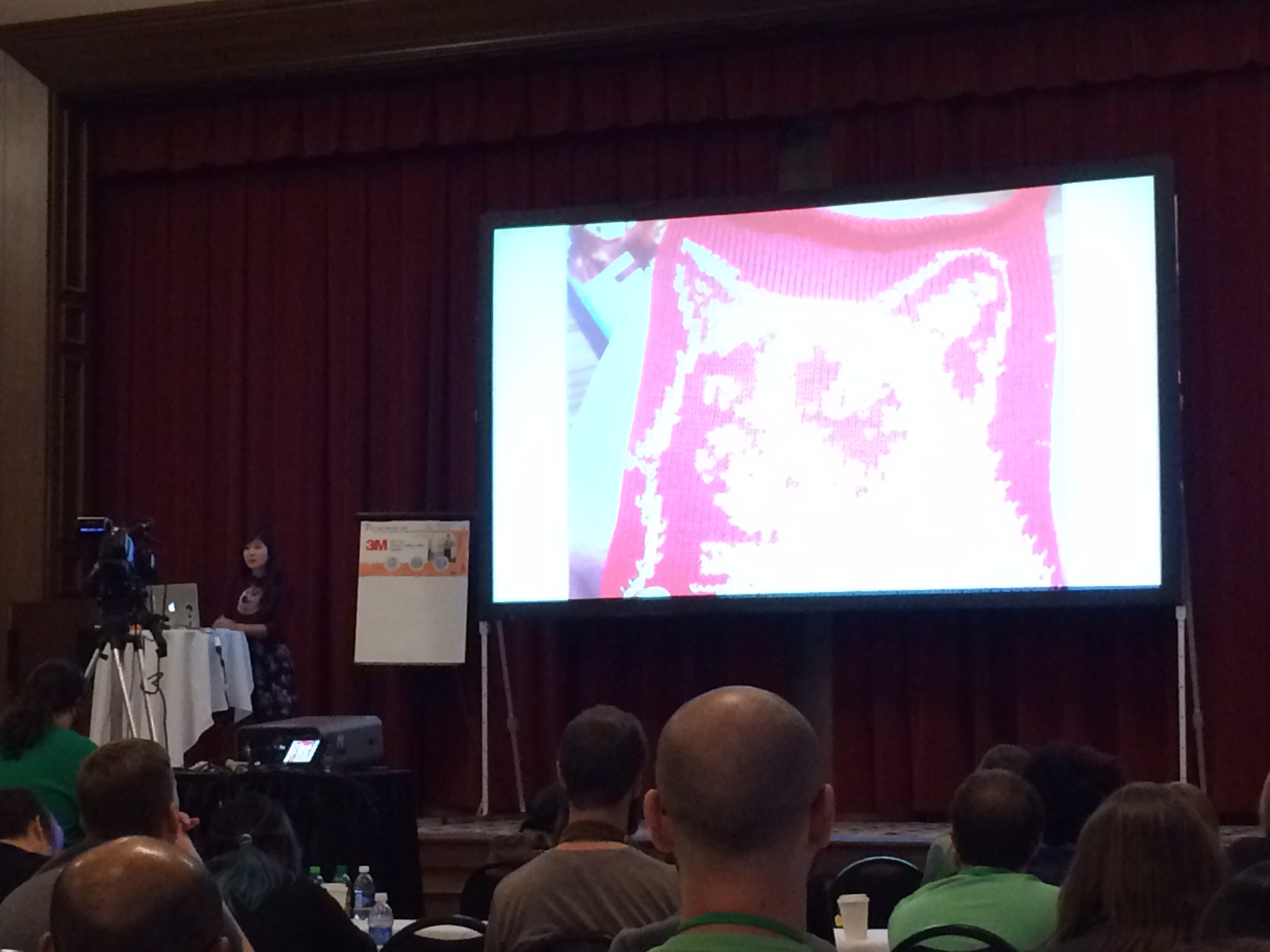
Amy Wibowo shows the yarn print out from the hacked knitting machine. (Photo: CocoaGems)
Favorite Talks
Out of the sessions I attended some of my favorites included Abby Bobe’s Keynote: From Protesting to Programming, Becoming a Tech Activist, Morgan Marquis-Boire’s Security for Humans: Privacy Coercion Resistant Design, and Brian Lile’s, Cognitive Bias: A reflection, Evelina Gabinova’s How Machine Learning helps Cancer, Beating Threads - live coding with real time by Sam Aaron, and No, Really… Robots and JavaScript?! by Raquel Vélez. Morgan Marquis-Boire’s talk was eye opening because it debunked conspiracy theories and proved that many science fictions alluding to a big brother surveillance system are as real as the built-in function SpyCore featured in iOS. Boire’s talk made me and I’m sure many other rethink our loyal attachments to our phones and our trust with all of the personal info we share. As the world goes mobile, he said, so does the surveillance state.
Sam Aaron talked about his invention Sonic Pi which allows him and many more to create music with code live in real time. He created Sonic Pi to teach kids about programming, but the program is really for anyone. We were so inspired that we immediately downloaded it and played with it the same night.
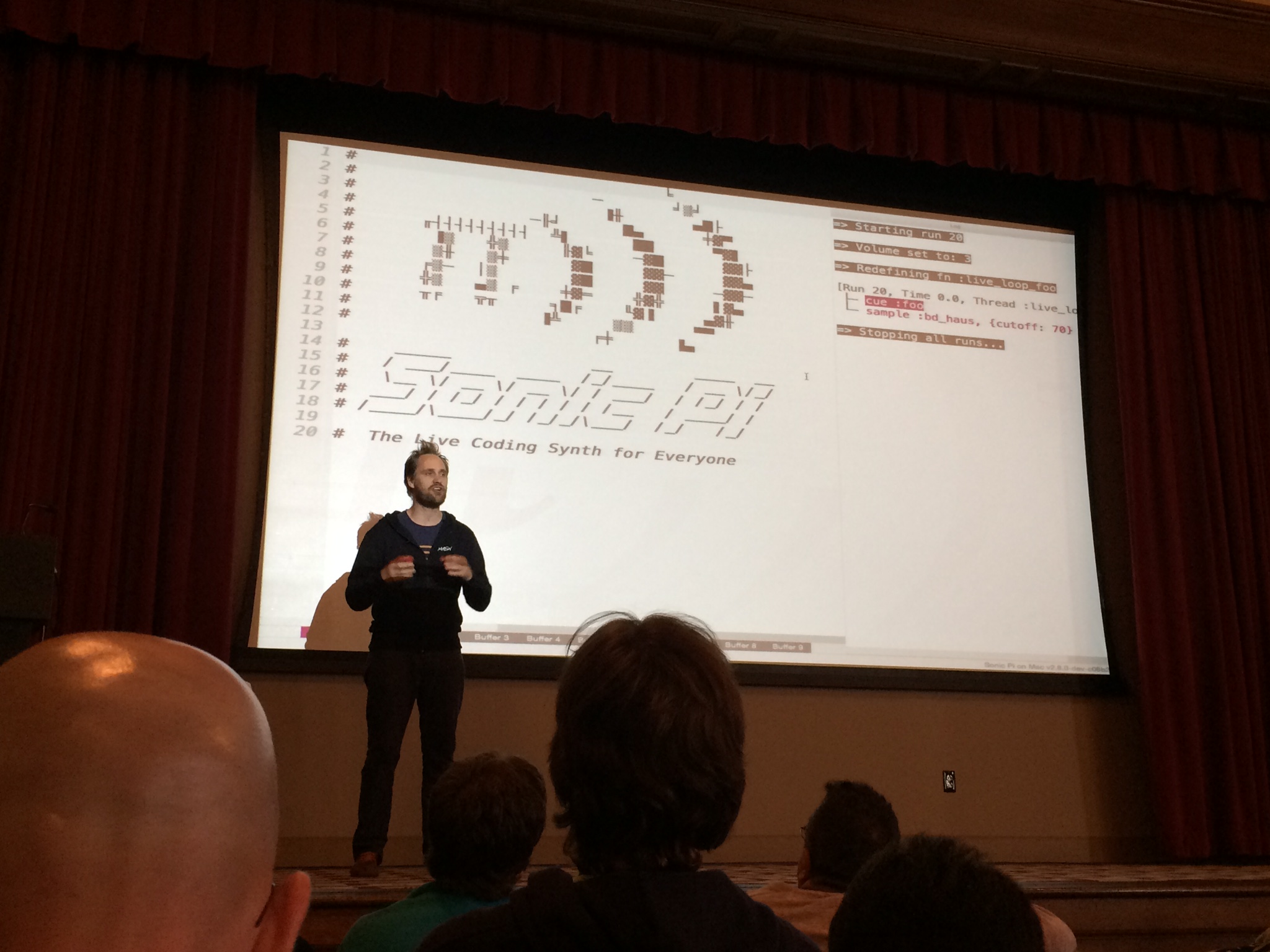
Sam Aaron talks about Sonic Pi. (Photo: CocoaGems)
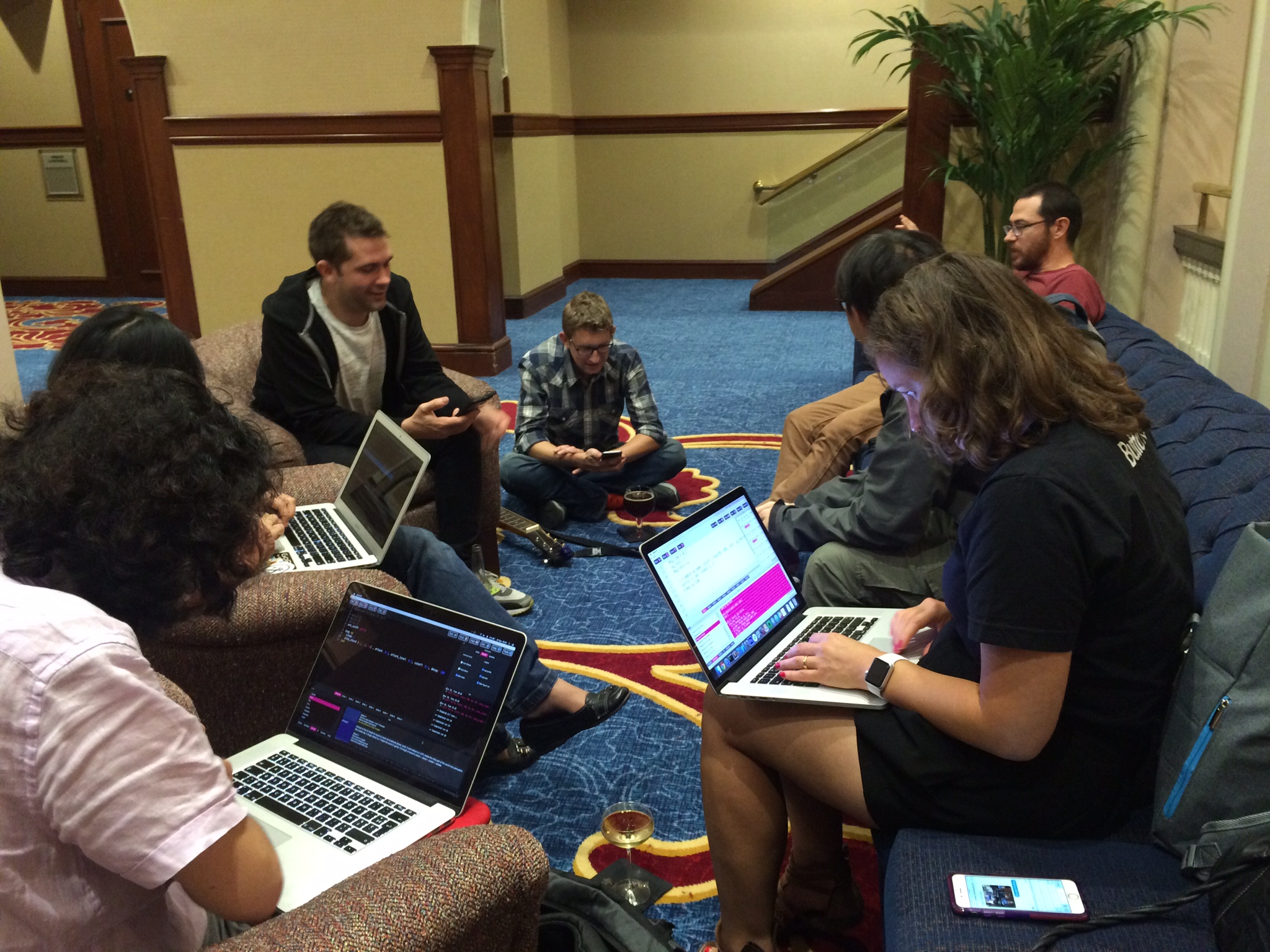
A group of us playing with Sonic Pi. (Photo: CocoaGems)